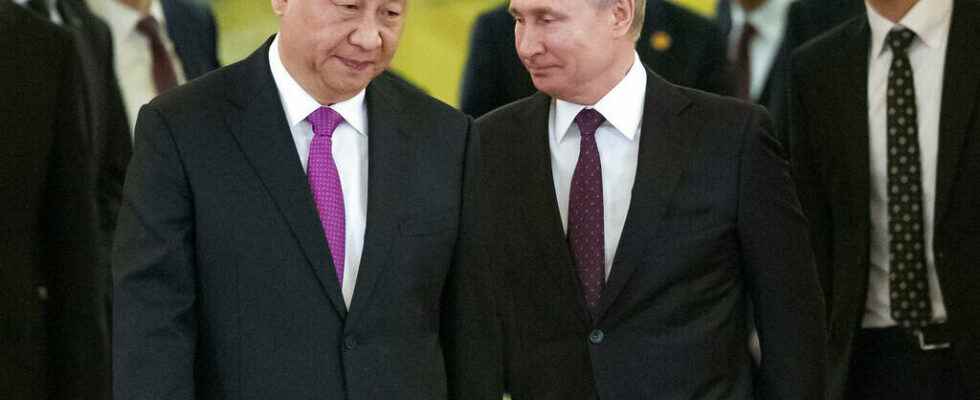After Russia’s recognition of the independence of the two separatist regions in eastern Ukraine, Vladimir Putin said he was ready, this Wednesday, February 23, to find “ diplomatic solutions ” with Westerners, in respect of its “ non-negotiable interests “. But what diplomatic channels could well be used to find a solution, knowing that Russia has so far refused any discussion?
Vladimir Putin does not seem to close the door to possible negotiations as he made it clear this Wednesday, February 23. And this desire to find a diplomatic solution to this crisis is shared since even the American president believes that there is still time to avoid the worst in Ukraine. The problem that now arises is how and through what means to open these discussions. On the Western side, it is believed that Russia simply does not want to negotiate. The absence of a representative of the Russian authorities last Saturday at the Munich security meeting is proof of this, according to some of the participants.
Possible discussions between NATO and Russia seem unlikely, given the current tensions. The “Normandy format”, which brought together France, Germany, Ukraine and Russia, has been buried since Vladimir Putin announced that the peace agreements in Ukraine no longer existed.
There remains the framework of the Organization for Security and Cooperation in Europe (OSCE), which brings together 57 member countries, including Russia, which seems to be the only way forward. But after the announcement of the cancellation of the meetings between the Russian Minister of Foreign Affairs and his French counterpart and that also planned also with Anthony Blinken, the American Secretary of State, it is difficult to imagine the different parties sitting down at a table and open discussions, at least officially.
What allies for Putin?
After Moscow’s announcement of the recognition of independence of the two separatist regions pro-Russians from eastern Ukraine, the condemnations of Western countries are in any case unanimous. The heads of diplomacy of the great powers of the G7 brought their ” unwavering support to the territorial integrity of Ukraine. But a handful of countries provide, timidly or more firmly, their support for Moscow.
This is the case of Damascus for example, which even dares to draw a parallel. For the Minister of Foreign Affairs, what the West is currently doing against Russia is similar to what it did against Syria “.
Venezuela also remains a strong supporter of Moscow, which is one of its main allies. ” Venezuela fully supports Putin “, proclaimed President Nicolas Maduro on Tuesday, who still received the Russian Deputy Prime Minister in Caracas on Friday. The country had already supported Russia in 2008 when it recognized the independence of South Ossetia with its usual rhetoric: we must resist, fight against imperialism.
” The United States adds fuel to the fire »
And then, other countries do not explicitly support Russia’s latest decisions. Both China and Iran are content to call on those involved in the crisis to exercise restraint. For communist propaganda, the United States adds fuel to the fire “, after US sanctions imposed on Russia.
During a press briefing, Chinese Foreign Ministry spokeswoman Hua Chunyin also questioned the role played by Washington in the tensions currently observed in Ukraine, reports our correspondent in Beijing, valentine bee. The Chinese diplomat also accuses the United States of having created panic and exaggerated the timetable for a war. This media outlet contrasts with the rather cautious attitude so far of China in the Ukrainian file.
Anxious not to offend its Russian ally, Beijing had however called on each party to ” detention without ever supporting a military intervention. At the same time, a censorship notice leaked on Chinese social networks and called on the media not to relay opinions unfavorable to Russia or favorable to the West.
